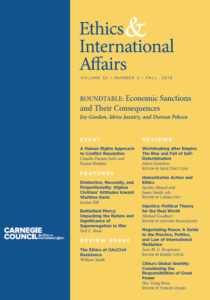In Peralta v. Dillard, the U.S. Court of Appeals for the Ninth Circuit, sitting en banc, denied a prisoner suffering from severe tooth decay and dental disease legal recourse from a state prison that had not provided him adequate medical treatment. In its six-to-five ruling, the Ninth Circuit ignored more than thirty years of precedent when it allowed courts to consider budgetary constraints and resource allocation available to prison officials in actions brought by inmates pursuant to 42 U.S.C. § 1983. In doing so, the court eliminated the option for inmates to seek solely monetary damages for Eighth Amendment violations. As a result of this decision, prisoners who have suffered injuries due to a prison official’s deliberate indifference are left with neither remedy nor recourse. Additionally, the court’s ruling renders ineffective important incentives that had encouraged states to improve prison conditions. States can now hide behind their budgets and neglect to improve poor conditions by citing lack of resources as a defense. This Comment explores the majority’s holding that lack of resources may in some circumstances justify cruel and unusual prison conditions contrary to the Eighth Amendment and Ninth Circuit precedent, and argues that the dissenting opinions more accurately reflect precedent in advocating for the constitutionally required medical treatment of U.S. prisoners.
Source: Boston College Joural of Law and Social Justice




Be First to Comment